Skin Care
This category includes products such as creams for eczema and psoriasis, acne treatments, antifungal ointments, and medicated lotions for dry or itchy skin. Read More…

-
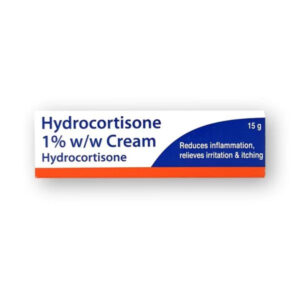
Hydrocortisone Cream/Ointment 1% – 15g
- Mild Steroid Treatment
- Treats Inflammatory Skin Conditions
- Buy With Confidence From UK Registered Pharmacy
£1.99 – £2.89 Select options This product has multiple variants. The options may be chosen on the product page -
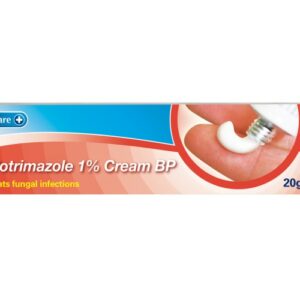
Clotrimazole 1% Cream
- Relieves Fungal Skin Infections
- Active Ingredient: Clotrimazole
- Treats Fungal Nappy Rash
£2.19 – £6.99 Select options This product has multiple variants. The options may be chosen on the product page -
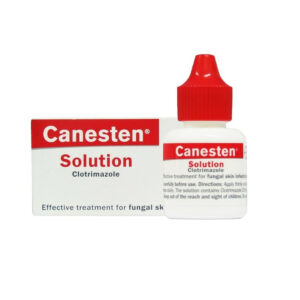
Canesten Solution 20ml
- Active Ingredients: Clotrimazole
- Effective Athletes Foot Relief & Nappy Rash
- Buy With Confidence From UK Registered Pharmacy
-
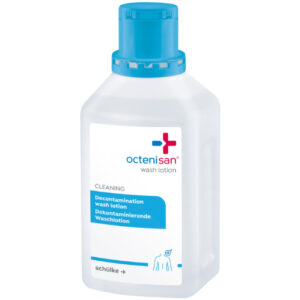
Octenisan Antimicrobial Wash Lotion
- Mild and gentle wash lotion for the skin and hair
- suitable for all skin types
- Active Ingredient: octenidine
£4.99 – £10.99 Select options This product has multiple variants. The options may be chosen on the product page -
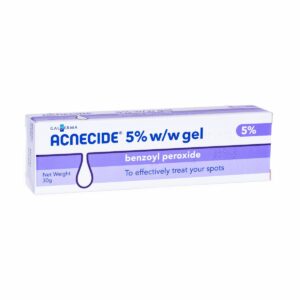
Acnecide 5% Topical Aqueous Gel
- Active Ingredient: Benzoyl Peroxide
- Topical Acne Treatment
- Buy With Confidence From UK Registered Pharmacy
£9.99 – £18.99 Select options This product has multiple variants. The options may be chosen on the product page -
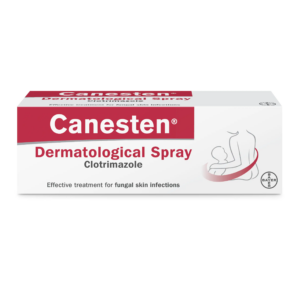
Canesten Dermatological Spray – 40ml
- Relieves Fungal Skin Infections
- Active Ingredient: Clotrimazole
- Treats Fungal Sweat Rash
-
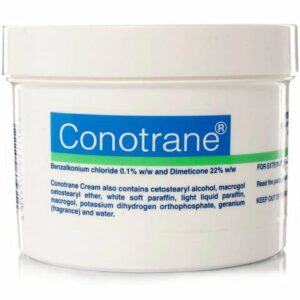
Conotrane Cream 500g
- Active Ingredients: Dimeticone & Benzalkonium chloride
- Softens And Protects
- Light And Absorbs Easily
-
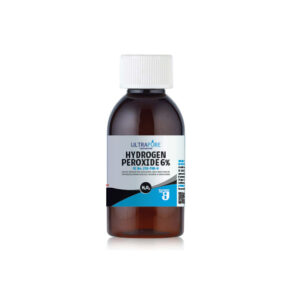
Hydrogen Peroxide 6% – 200ml
- Simple To Apply Disinfectant
- Active Ingredient: Hydrogen Peroxide 6% w/v
- Buy With Confidence From UK Registered Pharmacy
-
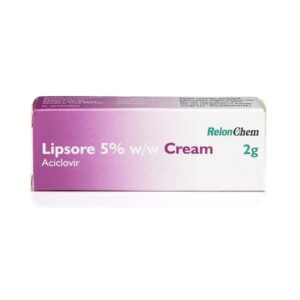
Aciclovir 5% Cream 2g
- Effective Cold Sore Treatment
- Active Ingredient: Aciclovir
- Buy With Confidence From UK Registered Pharmacy
-
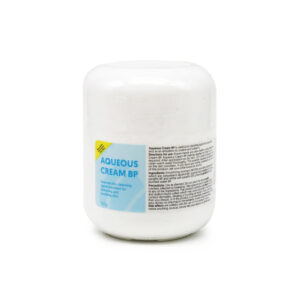
Aqueous Cream – 100g Pot
- For topical use as an external skin cleansing agent
- Can also be used as an emollient for softening and soothing the skin
- Reduces itching and trigger factors
-
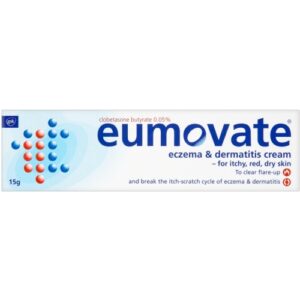
Eumovate Eczema & Dermatitis Cream 15g
- Relieves Flare-Ups Of Eczema And Dermatitis
- Soothes Itchy, Red, Dry Skin
- Active Ingredient: Clobetasone Butyrate
-
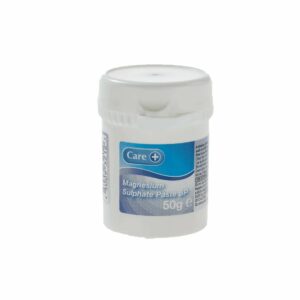
Magnesium Sulphate Paste 50g
- Traditional Drawing Ointment
- Buy With Confidence From UK Registered Pharmacy
- Next Day Delivery Available
-
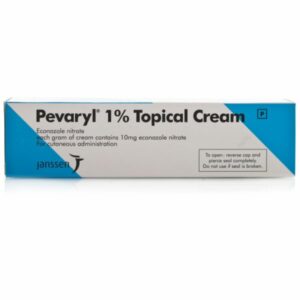
Pevaryl 1% Topical Cream
- Provides Symptomatic Treatment For Athlete’s Foot
- Active Ingredient: Econazole
- Buy With Confidence From UK Registered Pharmacy
-
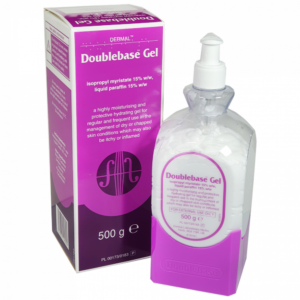
Doublebase Gel – 500g
- Treatment For Dry, Chapped & Sore Skin
- Active Ingredients: Liquid Paraffin & Isopropyl Myristate
- Next Day Delivery
-
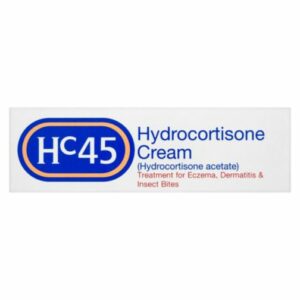
HC45 Hydrocortisone Cream – 15g
- Treatment For Itchy Dry Or Red Skin
- Active Ingredient : Hydrocortisone
- Next Day Delivery Available
-
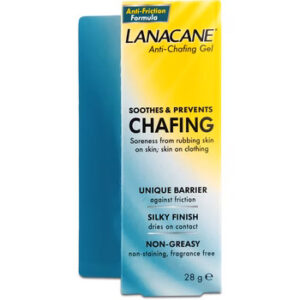
Lanacane Anti-Chafing Gel 28g
- Fast Effective Relief Against Chaffing
- Buy With Confidence From UK Registered Pharmacy
- Next Day Delivery Available
-
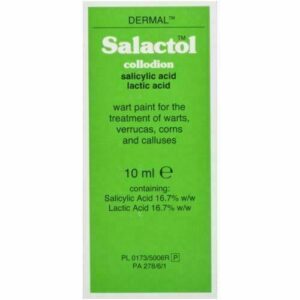
Salactol Wart Paint 10ml
- Effective Treatment for Warts and Verrucas
- Active Ingredient: Salicylic Acid
- Noticeable Results After Just A Few Weeks of Treatment
-
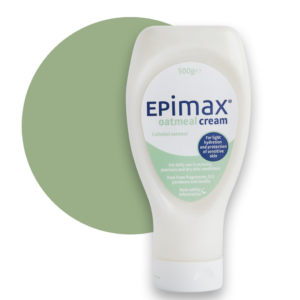
Epimax Oatmeal Cream 500g
- Soothes And Moisturises
- Softens And Protects
- Light And Absorbs Easily
-
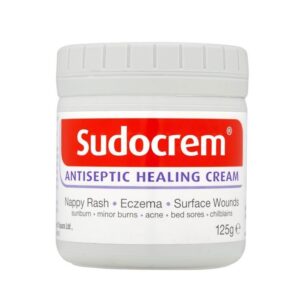
Sudocrem Antiseptic Healing Cream
- Effective Protection For Nappy Rash
- Easy To Apply & Breathable Barrier
- Caring Formula For Children’s Delicate Skin
£4.99 – £14.99 Select options This product has multiple variants. The options may be chosen on the product page -
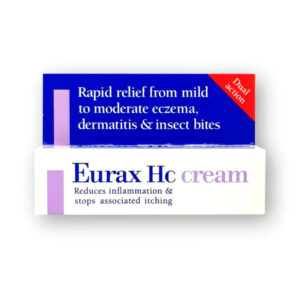
Eurax HC Cream 15g
- Rapid, soothing relief from itching and irritation
- Also treats Eczema and dermititis
- Reduce scratching and trigger factors
-
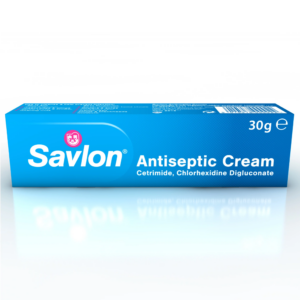
Savlon Antiseptic Cream
- Cleanses cuts, grazes and minor wounds to help prevent infection
- First aid treatment of superficial burns & scalds
- Prevention of infection on shaving cuts, blisters and sores
£2.99 – £7.49 Select options This product has multiple variants. The options may be chosen on the product page -
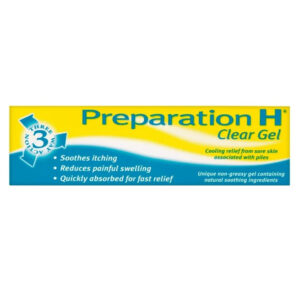
Preparation H Clear Gel
- Cooling Relief From Sore Skin Associated With Piles
- Active Ingredient: Hamamelis Water
- Buy With Confidence From UK Registered Pharmacy
£5.99 – £8.59 Select options This product has multiple variants. The options may be chosen on the product page -
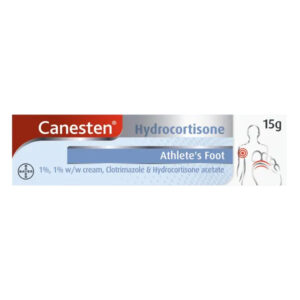
Canesten Hydrocortisone Cream 15g
- Clotrimazole & Hydrocortisone
- Triple action formula treats sweat rash and athlete's foot
- Anti-inflammatory, anti-bacterial, anti-fungal
-
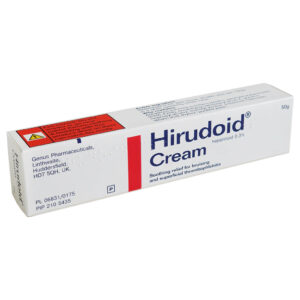
Hirudoid 50g
- Promotes Healing
- Easy To Apply
- Relieves Pain & Inflammation
£9.49 Select options This product has multiple variants. The options may be chosen on the product page -
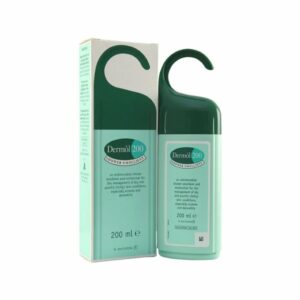
Dermol 200 Shower Emollient – 200ml
- Can Also Be Used As A Soap Substitute
- Effective Treatment for Eczema & Dry Skin Conditions
- Buy With Confidence From UK Registered Pharmacy
-
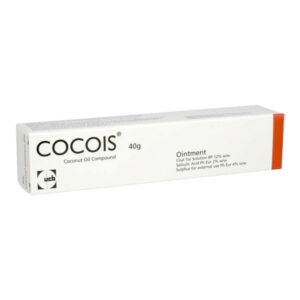
Cocois Ointment
- For treatment of dry, scaly skin disorders
- Coal tar solution
- Eczema, dandruff & other inflammatory skin conditions
£18.99 – £25.99 Select options This product has multiple variants. The options may be chosen on the product page -
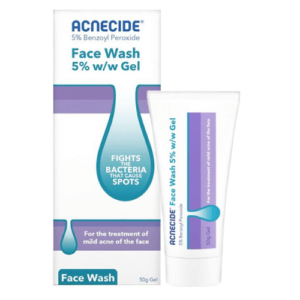
Acnecide 5% Face Wash Gel
- Active Ingredient: Benzoyl Peroxide
- Easy To Apply
- Topical Acne Treatment
£10.99 – £17.49 Select options This product has multiple variants. The options may be chosen on the product page -
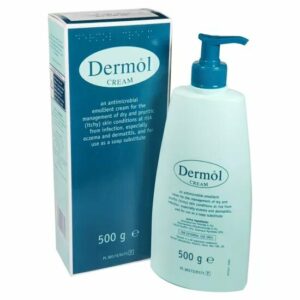
Dermol Cream
- Can Be Used For Babies and Children
- Effective Treatment for Eczema & Dry Skin Conditions
- Buy With Confidence From UK Registered Pharmacy
£5.99 – £12.99 Select options This product has multiple variants. The options may be chosen on the product page -
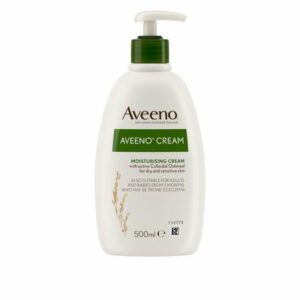
Aveeno Cream 500ml
- For dry and sensitive skin
- Can be used on babies 3 months +
- Moisturising cream
-
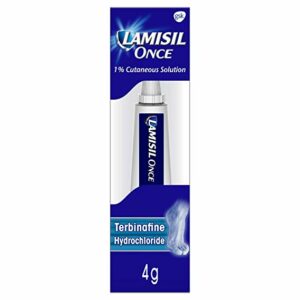
Lamisil Once 1% Cutaneous Solution
- Unique Anti-fungal Product
- Requires Just One Application!
- Shortest Treatment Time Of Any Tinea Treatment Product
-

Anthisan Bite and Sting Cream 20g
- Treats pain, itching and inflammation caused by insect stings, bites and nettle rash
- Buy With Confidence From UK Registered Pharmacy
- Next Day Delivery Available
-
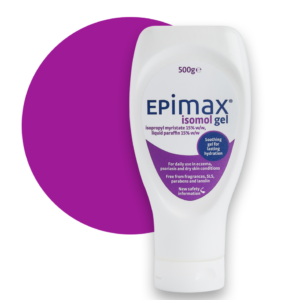
-
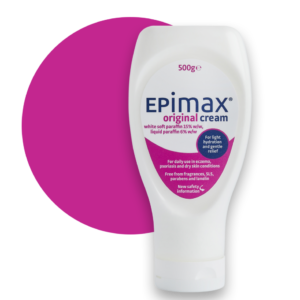
Epimax Original Cream 500g
- Soothes And Moisturises
- Softens And Protects
- Light And Absorbs Easily
-
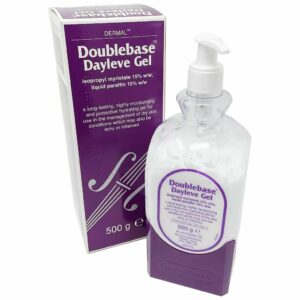
Doublebase Dayleve Gel
- Treatment For Dry & Chapped Skin Conditions
- Active Ingredients: Isopropyl & Liquid paraffin
- Buy With Confidence From UK Registered Pharmacy
£5.99 – £12.99 Select options This product has multiple variants. The options may be chosen on the product page -
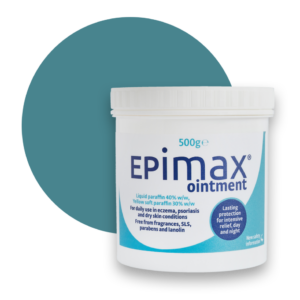
-
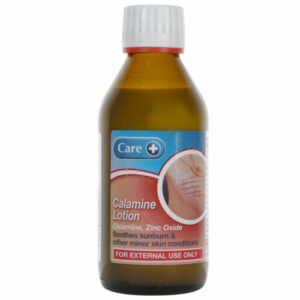
Calamine Lotion 200ml
- Suitable For All Ages, Including Babies
- Recommended By UK Doctors
- Buy With Confidence From UK Registered Pharmacy
-
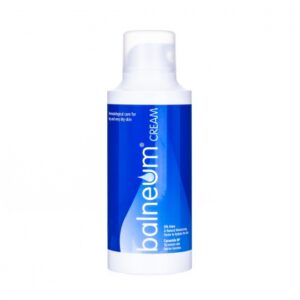
Balneum Cream
- Relieves Flare-Ups Of Eczema And Dermatitis
- Soothes Itchy, Red, Dry Skin
- Active Ingredient: Clobetasone Butyrate
£6.99 – £27.99 Select options This product has multiple variants. The options may be chosen on the product page -
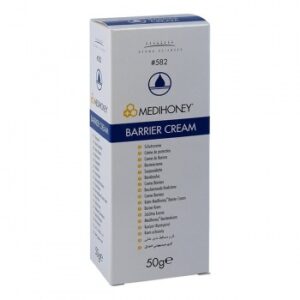
Medihoney Barrier Cream 50g
- Can be applied under wound dressings
- Helps maintain the skin's barrier properties and moisture
- Helps prevent maceration and excoriation
-
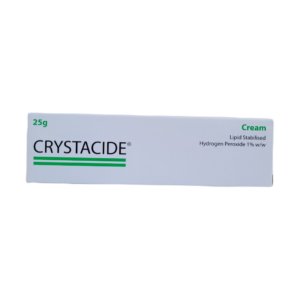
Crystacide Cream – 25g
- Contains Hydrogen Peroxide 1%
- For the treatment of primary and secondary superficial skin infections
- Effective against a majortiy of micro-organisms
-
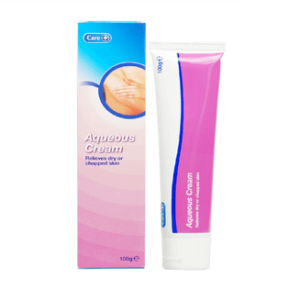
Care Aqueous Cream 100g
- Maintains Skin Moisture
- Helps Eczema & Dermatitis
- Reduces Itching & Trigger Factors
-
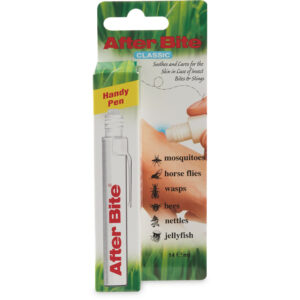
After Bite Insect Bite Relief – 14ml
- Fast Effective Relief Against Bites & Stings
- Buy With Confidence From UK Registered Pharmacy
- Next Day Delivery Available
-
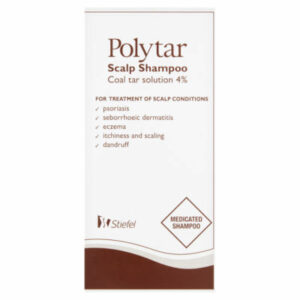
Polytar 4% Scalp Shampoo Coal Tar Solution – 150ml
- For Treatment Of Scalp Conditions
- Suitable For Adults & Children Over 12 Years
- Reduce Scales, Inflammation & Itchiness
-
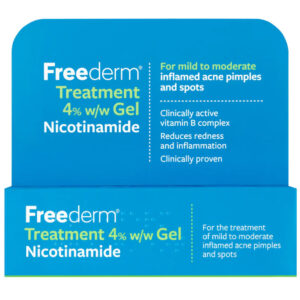
Freederm Treatment 4% Gel – 25g
- Active Ingredient: Nicotinamide
- Topical Acne Treatment
- Buy With Confidence From UK Registered Pharmacy
-
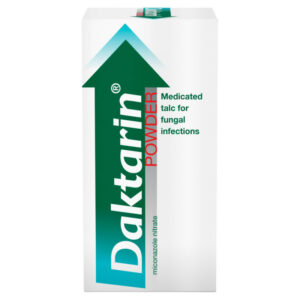
Daktarin Powder 20g
- Daktarin Powder
- Medicated talc for fungal infections
- Next Day Delivery Available
-
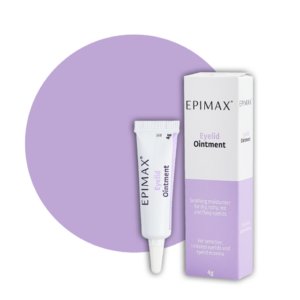
-
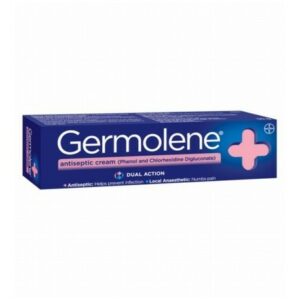
Germolene Antiseptic Cream 55g
- Suitable For Use On Children
- Effectively Prevents Infections
- Numbs Pain
-
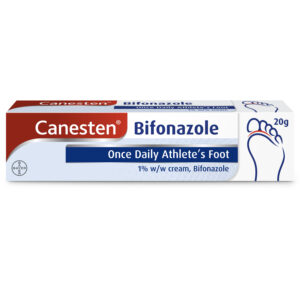
Canesten Bifonazole Once Daily Athlete’s Foot 1% Cream – 20g
- Active Ingredients: Bifonazole
- Effective Athletes Foot Treatment
- Buy With Confidence From UK Registered Pharmacy
-
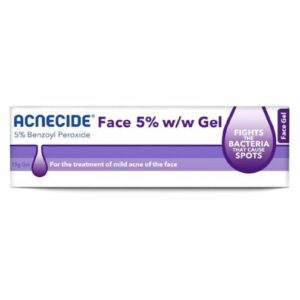
Acnecide Face Gel 15g
- Effective Acne Treatment
- Easy To Apply
- Doesn't Clog Pores
-
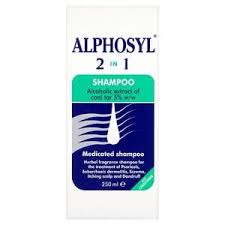
Alphosyl 2 In 1 Shampoo – 250ml
- Treats Dandruff And Seborrhoeic Dermatitis
- Relieves A Dry, Flaky, Red, Itchy Scalp
- Active ingredient coal tar extract
-
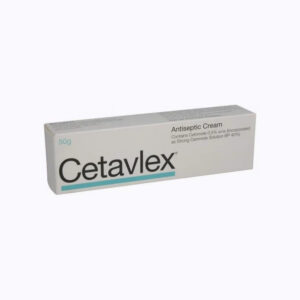
Cetavlex Antiseptic Cream 50g
- Treats Minor Wounds, Burns And Nappy Rash
- Effectively Kills Germs
- Active Ingredient: Cetrimide 0.5% w/w
-
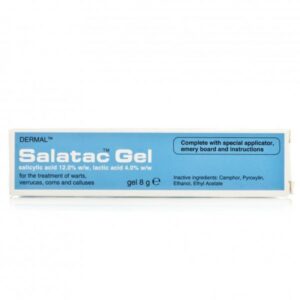
Salatac Gel 8g
- Active Ingredients: Salicylic / Lactic Acid
- Treatment Of Warts
- Buy With Confidence From UK Registered Pharmacy
-
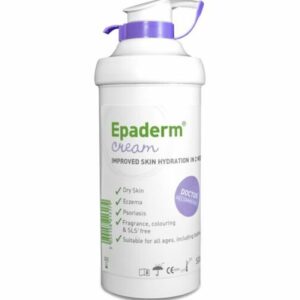
Epaderm Cream
- Suitable For All Ages, Including Babies
- Recommended By UK Doctors
- Buy With Confidence From UK Registered Pharmacy
£3.99 – £12.99 Select options This product has multiple variants. The options may be chosen on the product page -
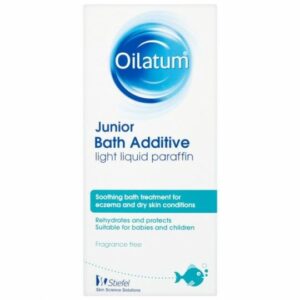
Oilatum Junior Bath Additive 600ml
- Soothing bath treatment for eczema and dry skin conditions
- Rehydrates and protects
- Suitable for babies and children
-
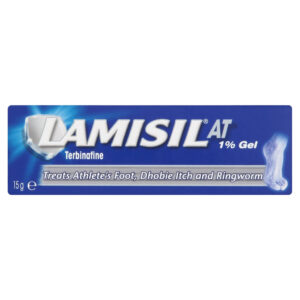
Lamisil AT 1% Gel 15g
- Effective Treatment for Athlete's Foot
- Active Ingredient: Terbinafine, 1% w/w
- Relieves Itching And Burning Sensations
-
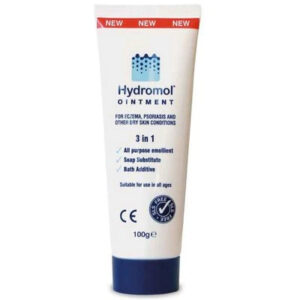
Hydromol Ointment 100g
- Softens And Hydrates Skin
- Locks In Moisture
- No Added Preservatives
-
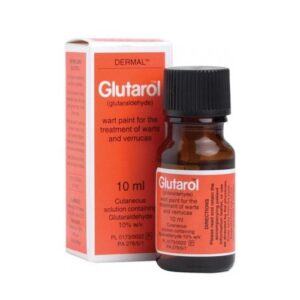
Glutarol 10% Cutaneous Solution 10ml
- Effective Treatment For Warts And Verrucas
- Prevents Infection From Spreading
- Kills Virus Causing The Wart/Verruca
-
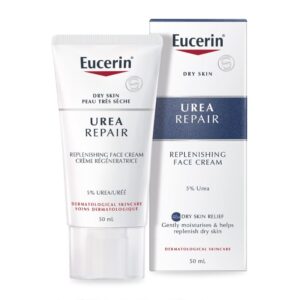
Eucerin Urea Repair Face Cream 50ml
- Instantly Soothes And Moisturises Tightness
- Easy To Apply
- Significantly Increases Skin Moisturisation Within 1 Week
-
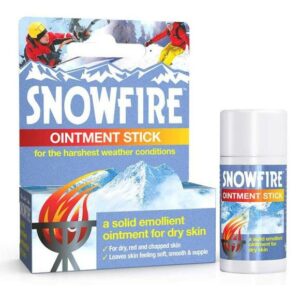
Snowfire Ointment Stick 18g
- Effective Relief From Dry Skin
- Can Be Used In Harsh Weather
- Keeps Your Skin Feeling Soft
-
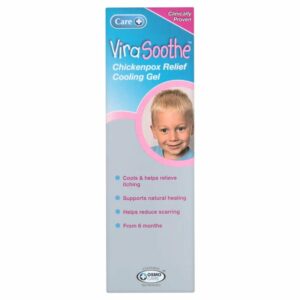
Virasoothe Chicken Pox Relief Cooling Gel
- Suitable for Children & Babies 6+ Months
- Effective Relief From Itching
- Buy With Confidence From UK Registered Pharmacy
£6.99 – £11.49 Select options This product has multiple variants. The options may be chosen on the product page -
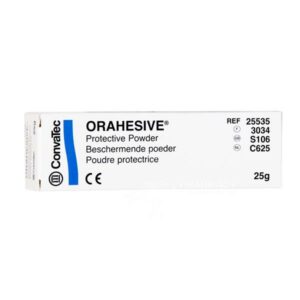
Orahesive Protective Powder 25g
- Adheres to moist areas
- Suitable for colostomy, Ileostomy, Urostomy
- Protective powder
-
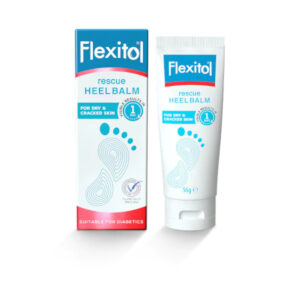
Flexitol Rescue Heel Balm – 56g
- Ideal For Everyday Use
- Effective Treatment For Dry & Cracked Heels
- Urea Moisturiser
-
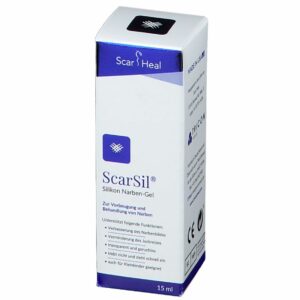
ScarSil Scar Gel
- For Hypertrophic and Keloid Scars
- Invisible
- Suitable For Use On Children
£21.99 – £31.99 Select options This product has multiple variants. The options may be chosen on the product page -
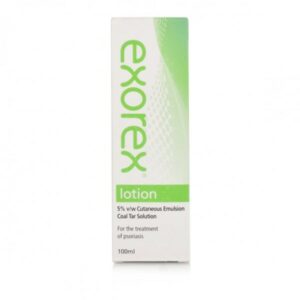
Exorex Lotion 5% Coal Tar Solution – 100ml
- 5% Cutaneous Emulsion Coal Tar Solution
- For the treatment of psoriasis
- Suitable for any age
-
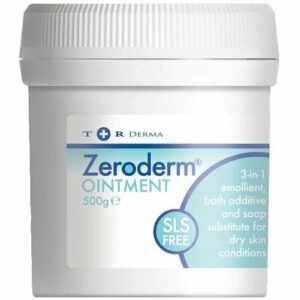
Zeroderm Ointment 500g
- Effective Treatment For Dry Skin Conditions
- Protects And Moisturises Skin
- Buy With Confidence From UK Registered Pharmacy
-
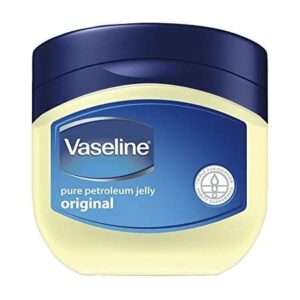
Vaseline Petroleum Jelly 100ml
- Effective Skin Protection
- Easy To Apply
- Dermatologist Recommended
-
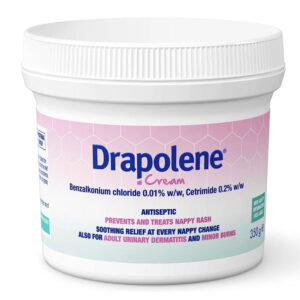
Drapolene Nappy Rash Cream 350g
- Effective Treatment For Nappy Rash
- Soothes And Reduces Redness
- Prevents Infection
-
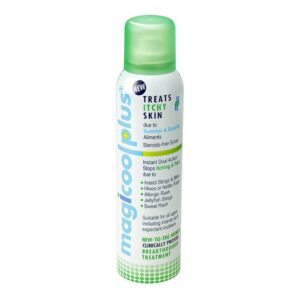
Magicool Plus Itchy Skin – 150ml
- Fast & Effective Itching Relief
- Stops Itching From Insect Stings, Allergic Rashes, Jellyfish Stings & more!
- Buy With Confidence From UK Registered Pharmacy
-
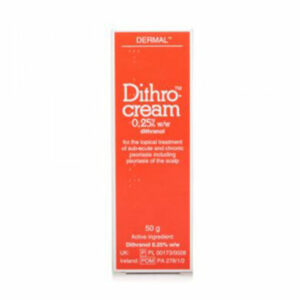
Dithrocream 0.25% – 50g
- Used To Treat Psoriasis
- Soothes Itchy, Red, Dry Skin
- Active Ingredients: Dithranol
-
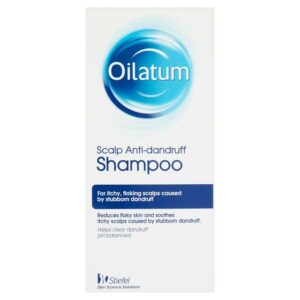
Oilatum Scalp Anti-Dandruff Shampoo 100ml
- Effective Treatment For Dandruff
- pH Balanced
- Fragrance-Free
-
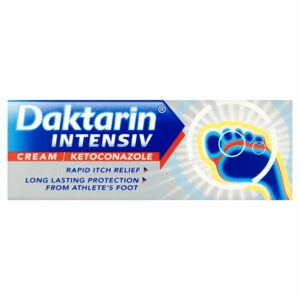
Daktarin Intensiv Cream 15g
- Effective Treatment for Athlete's Foot
- Rapid Itch Relief
- Provides Protection From Skin Infections
-
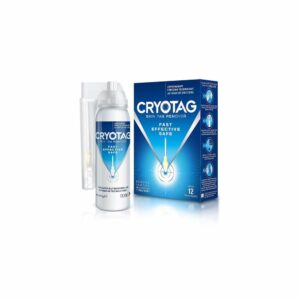
Cryotag Skin Tag Remover – 80ml
- Removes skin tags in as little as one treatment
- Instantly freezes the skin tag to the core
- Uses the same freezing technology as doctors & dermatologists
-
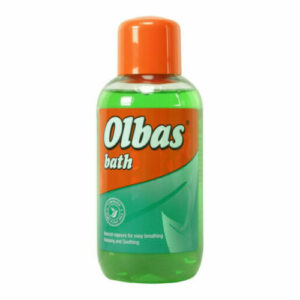
Olbas Bath Oil 250ml
- For Relaxation & Congestion Relief
- Buy With Confidence From UK Registered Pharmacy
- Next Day Delivery Available
-
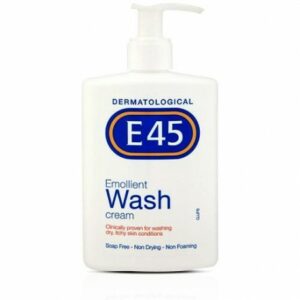
E45 Emollient Wash Cream 250ml
- Effective Treatment For Eczema
- Keeps Skin Moisturised
- Suitable For Children
-
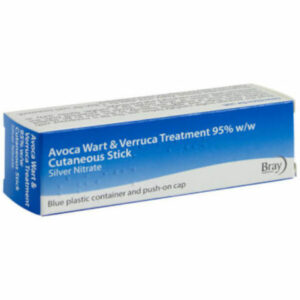
Avoca Wart & Verruca Treatment 95%
- Effective Treatment for Warts and Verrucas
- Active Ingredient: Silver Nitrate
- Noticeable Results After Just A Few Weeks of Treatment
-
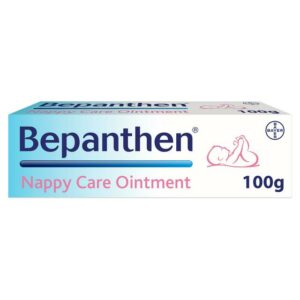
Bepanthen Ointment
- Effective Protection For Nappy Rash
- Easy To Apply & Breathable Barrier
- Caring Formula For Children’s Delicate Skin
£5.49 – £9.99 Select options This product has multiple variants. The options may be chosen on the product page -
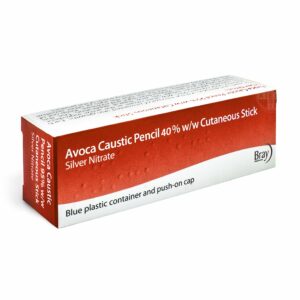
Avoca Wart & Verruca Treatment 40%
- Effective Treatment for Warts and Verrucas
- Active Ingredient: Silver Nitrate
- Noticeable Results After Just A Few Weeks of Treatment
-
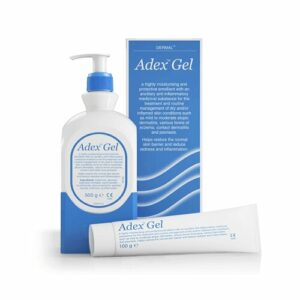
Adex Gel 500g
- Soothes And Moisturises
- Softens And Protects
- Light And Absorbs Easily
-
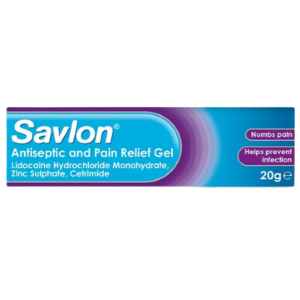
Savlon Antiseptic and Pain Relief Gel – 20g
- Relief from pain, itching and irritation
- Cleanses minor wounds to help prevent infection
- For relief from skin reactions such as nettle rash
-
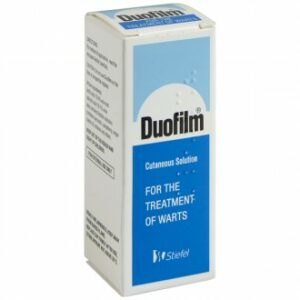
Duofilm Wart Treatment 15ml
- Effective Treatment for Warts
- Quick and easy to use at home
- Buy With Confidence From UK Registered Pharmacy
-
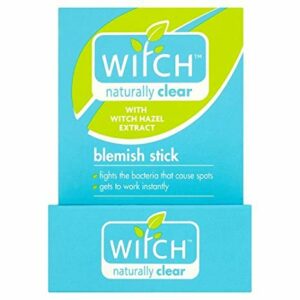
Witch Blemish Stick – 10g
- Naturally cleanses, tones and soothes
- Contains antioxidants to help maintain normal skin renewal
- Helps to tighten and close damaged skin, helping to reduce inflammation
-
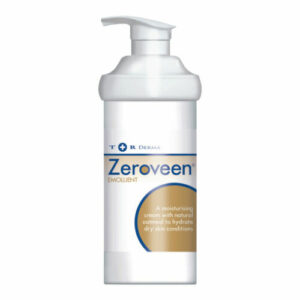
Zeroveen Cream 500g
- Highly Moisturising
- Perfect For Dry Skin
- Light And Absorbs Easily
-
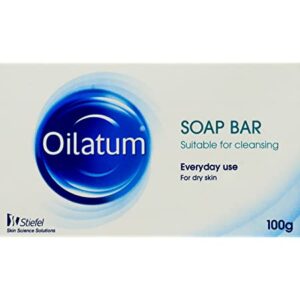
Oilatum Soap Bar 100g
- Effective Treatment For Dry Skin Conditions
- Suitable For Daily Cleansing
- Replenishes Important Oils
-
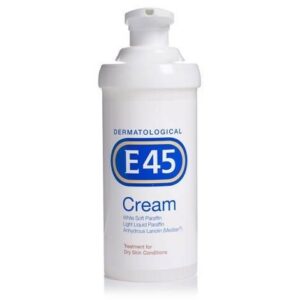
E45 Cream 500g
- Effective Treatment For Eczema
- Keeps Skin Moisturised
- Suitable For Children
-
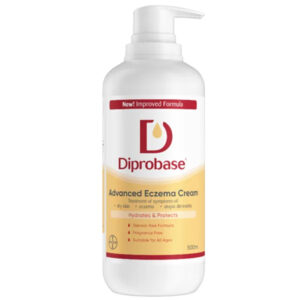
Diprobase Advanced Eczema Cream – 500ml
- Use as often as required
- Non-greasy and easily absorbed
- Provides a cooling sensation during application
-
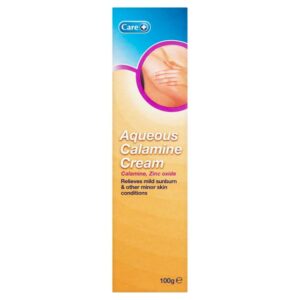
Care Aqueous Calamine Cream 100g
- Active Ingredients: Calamine & Zinc Oxide
- Relieves mild sunburn
- Can be used to treat itchy skin caused by chickenpox
-
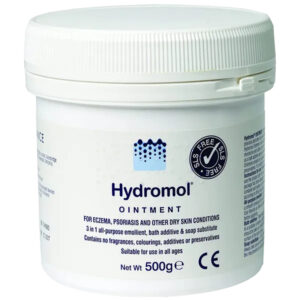
Hydromol Ointment 500g
- Softens And Hydrates Skin
- Locks In Moisture
- No Added Preservatives
-
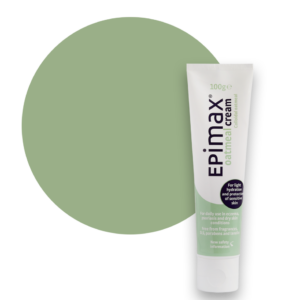
Epimax Oatmeal Cream 100g
- Soothes And Moisturises
- Softens And Protects
- Light And Absorbs Easily
-
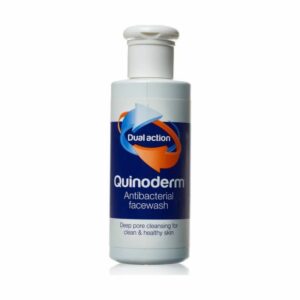
Quinoderm Antibacterial Facewash 150ml
- Effective Acne Treatment
- Easy To Apply
- Doesn't Clog Pores
-
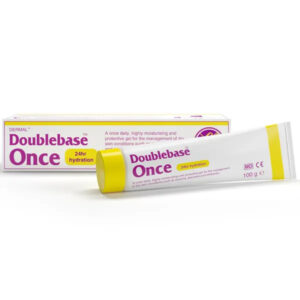
Doublebase Once Emollient Gel 100g
- Provides 24hr hydration
- Highly moisturising and protective gel
- Manages skin conditions such as eczema, psoriasis & ichthyosis
-
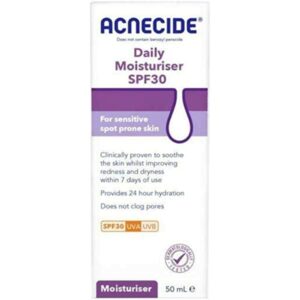
Acnecide Daily Moisturiser 50ml
- Provides 24 Hour Hydration
- Improves Redness And Dryness Within 7 Days
- Doesn't Clog Pores
-
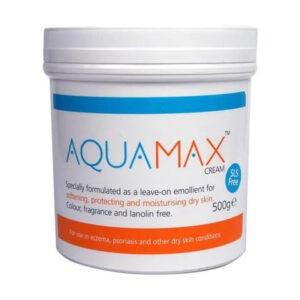
Aquamax Emollient Cream 500g
- Effective Treatment For Dry Skin Conditions
- Suitable For All Ages
- Protects And Moisturises Skin
-
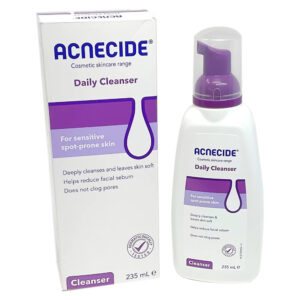
Acnecide Daily Cleanser 235ml
- Active Ingredient: Zinc Coceth Sulfate
- Effective Acne Treatment
- Doesn't Clog Pores
-
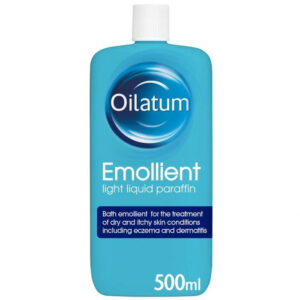
Oilatum Emollient Light Liquid Paraffin – 500ml
- Hydrate, soothe and soften the skin
- Treat itchy, irritating dry skin conditions including eczema and dermatitis
- Buy With Confidence From UK Registered Pharmacy
-
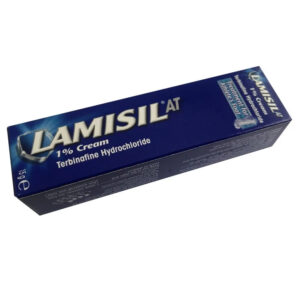
Lamisil AT 1% Cream – 15g
- Effective Treatment for Athlete's Foot
- Active Ingredient: Terbinafine, 1% w/w
- Relieves Itching And Burning Sensations
-
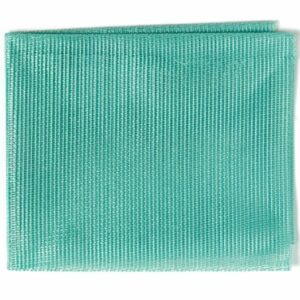
Cutimed Sorbact Swab 7x9cm (5 Swabs)
- Flat, folded dressing
- Deep or superficial wounds
- Irreversibly binds and inactivates bacteria
-
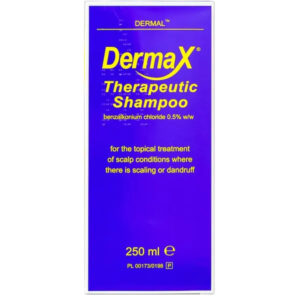
Dermax Therapeutic Shampoo 250ml
- Effective Treatment For Dry Scalp Conditions
- Acts As A Mild Antiseptic
- Active Ingredient: Benzalkonium Chloride
-
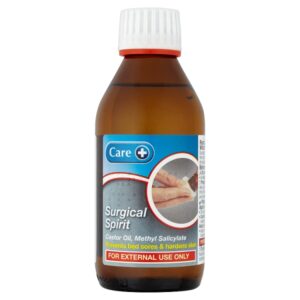
Care Surgical Spirit 200ml
- Improves Blood Flow
- Hardens Soft Skin On Feet
- Active Ingredient: Methyl Salicylate 0.5% v/v
-
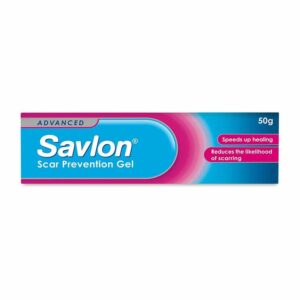
Savlon Advanced Scar Prevention Gel – 50g
- Cleanses cuts, grazes and minor wounds to help prevent infection
- Speeds up healing
- Reduces the likelihood of scarring
-
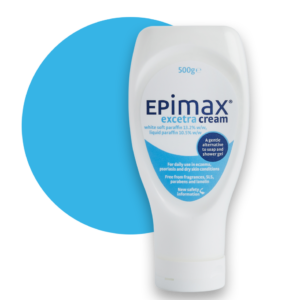
Epimax Excetra Cream 500g
- Locks In Moisture On The Skin
- Lanolin Free
- Vegan Friendly
-
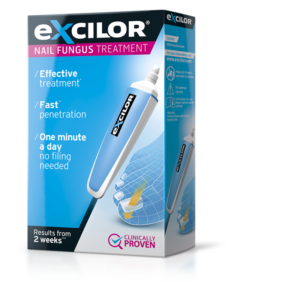
Excilor Nail Fungus Treatment Pen
- Effective Treatment for Fungal Infections
- Active Ingredient: Ethyllactate
- Results In As Little As 2 Weeks
-
About Psoriasis and Eczema
Psoriasis and eczema are two distinct skin conditions that can cause discomfort and affect the quality of life. Psoriasis is an autoimmune condition where the immune system causes skin cells to grow faster than normal, resulting in thick, red skin with silvery scales, known as plaques. It’s a chronic disease, meaning it can flare up unexpectedly. Common areas affected include the scalp, elbows, knees, and lower back.
Eczema, on the other hand, is often related to an overactive immune response to environmental triggers, leading to inflamed, itchy, and dry skin. People with a family history of eczema or other allergies are more likely to have it. It can appear anywhere on the body and is especially common in the folds of the skin.
Both conditions can be exacerbated by certain triggers like stress, allergens, and skin irritants. They’re not contagious, and their symptoms can vary significantly from person to person.
Managing these conditions involves a combination of skincare and lifestyle changes to avoid known triggers. For psoriasis, treatments may include topical creams, light therapy, and medications to slow down skin cell production. In the case of eczema, keeping the skin moisturised, avoiding irritants, and using anti-inflammatory medications can help control the condition.
-
Symptoms
Symptoms of psoriasis typically include:
Patches of skin that are dry and covered in scales, which can appear on any body part but are common on elbows, knees, scalp, and lower back.
Skin discoloration with the patches varying from pink or red with white or silvery scales on lighter skin, to purple or dark brown with grey scales on darker skin tones.
Itching or soreness in the affected areas.
The condition often cycles, causing problems for weeks or months before subsiding.Symptoms of eczema include:
Itchy skin which can become severely irritated and inflamed when scratched.
Dry, sensitive skin that may have areas that are scaly or leathery.
Patches that may be reddish (on lighter skin) or darker than the surrounding skin (on darker skin), brownish-grey in colour, or may not be clearly darker or lighter.
Skin that can swell, leak fluid, and develop a crust when scratched.
These symptoms can significantly impact comfort and quality of life, and if you suspect you might have psoriasis or eczema, it’s important to see a healthcare provider for an accurate diagnosis and appropriate treatment. -
Diagnosis
Psoriasis and eczema are diagnosed by healthcare professionals through careful examination and patient history. With psoriasis, dermatologists often rely on a visual exam of the skin, nails, and scalp, as well as the patient’s medical and family history. If the diagnosis is uncertain, a skin biopsy may be performed to confirm it.
Eczema diagnosis similarly involves an examination of the skin and a discussion about the patient’s personal and family medical history. A patch test might be used to determine if the condition is related to an allergy. In some cases, genetic testing may be necessary to differentiate between eczema and psoriasis.
Both conditions involve overactive inflammatory pathways in the immune system, but they are triggered differently. Psoriasis is an autoimmune reaction leading to rapid skin cell turnover, while eczema may be triggered by an allergic reaction or sensitivity to substances or due to a defect in skin barrier proteins.
Accurate diagnosis is key because it ensures that patients receive the right treatment, which can vary significantly between the two conditions.
-
Treatments
Over-the-counter skin care products can be a helpful part of managing skin conditions such as psoriasis and eczema. They offer a range of treatments to soothe the skin, reduce inflammation, and manage symptoms. Here’s a brief overview of how such products can aid in the care for these conditions:
For psoriasis, over-the-counter products may help to moisturise the skin and reduce dryness and scaling. Moisturisers are essential as they help seal water in the skin, which can soothe dryness, assist in healing, and make the skin more comfortable.
In the case of eczema, it’s vital to keep the skin hydrated to prevent dryness and itching that can lead to inflammation. Over-the-counter products often contain ingredients like ceramides and lipids that help repair the skin barrier and reduce moisture loss.
Highlighted products:
- Hydrocortisone Cream/Ointment 1% – 15g: Offers a mild steroid treatment for inflammatory skin conditions and can be particularly helpful in reducing the inflammation and itching associated with eczema.
- Clotrimazole 1% Cream: This cream targets fungal skin infections and is beneficial in treating fungal-related skin conditions, which can sometimes occur alongside or be confused with eczema symptoms.
- Octenisan Antimicrobial Wash Lotion: Suitable for all skin types, this wash lotion provides a mild and gentle cleansing option, which can be beneficial for those with sensitive skin conditions like eczema.
- Acnecide 5% Topical Aqueous Gel: Contains Benzoyl Peroxide and is a topical treatment for acne, which some people with psoriasis may also experience.
When using any over-the-counter product, it is essential to follow the directions on the label and be mindful of potential side effects such as skin irritation. If symptoms persist or if over-the-counter options do not provide relief, consulting a healthcare provider for prescription treatments or further advice may be necessary.
-
Prevention Strategies
Preventing skin conditions like psoriasis and eczema involves a holistic approach that starts with understanding your skin’s needs and addressing them through a combination of lifestyle choices and skin care practices:
Follow an Anti-inflammatory Diet: Consuming leafy greens, fresh fruits, and foods high in omega-3 fatty acids can help manage inflammation associated with skin conditions.
Moisturise Regularly: Keeping the skin well-hydrated is crucial, especially after bathing, to lock in moisture.
Gentle Skin Care: Use mild cleansers and avoid scrubbing the skin harshly. For those with sensitive skin, fragrance-free and gentle skincare products are recommended.
Stress Management: Stress can trigger flare-ups, so finding healthy ways to manage stress can be beneficial.
Avoid Known Triggers: Keep track of triggers that worsen your condition and try to avoid them. This could include certain fabrics, detergents, smoke, and stress.
Protect Your Skin: Use sunscreen to protect your skin from sun damage, which can exacerbate conditions like psoriasis and eczema.
Healthy Lifestyle Choices: Avoid smoking and excessive alcohol consumption, as these can also affect your skin’s health.Remember that what works for one person may not work for another, so it’s important to understand your body and any specific triggers or conditions that affect you.












